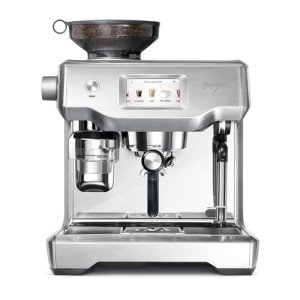One Of The Biggest Mistakes That People Make With Home Use Espresso Machines
Home Use Espresso Machines: A Comprehensive Guide
Espresso machines have actually become a staple in lots of homes as coffee lovers seek to duplicate café-quality brews in the comfort of their cooking areas. The increase in appeal has actually led to a diverse market filled with different models, functions, and costs. This article aims to supply a helpful overview of home use espresso machines, assisting readers browse their alternatives successfully.
Comprehending Espresso Machines
Espresso machines work by forcing warm water through finely-ground coffee under high pressure, resulting in a focused coffee drink referred to as espresso. There are a number of types of espresso machines classified based upon their brewing approaches and level of automation. The most typical types include:
Manual Espresso Machines: These require the user to control the pressure and water circulation, permitting a more hands-on coffee-making experience.
Semi-Automatic Espresso Machines: These use automatic control over water pressure, while the user manually grinds and tamps the coffee.
Automatic Espresso Machines: With the push of a button, these machines automatically manage the flow of water, making it simpler to brew espresso with constant outcomes.
Super-Automatic Espresso Machines: These all-in-one machines deal with grinding, tampering, developing, and even milk frothing, making them perfect for users looking for convenience.
Capsule or Pod Machines: These use pre-packaged coffee pods to produce espresso with minimal effort, but they limit option in developing strategies and tastes.
Table: Comparison of Espresso Machine Types
Type
Control Level
Alleviate of Use
Cleaning up Level
Suitable For
Manual
User-controlled
Moderate
High
Coffee perfectionists
Semi-Automatic
Partial automation
Moderate
Moderate
Home baristas
Automatic
Totally automated
Easy
Low
Busy individuals
Super-Automatic
Completely automated
Extremely simple
Extremely low
Convenience candidates
Capsule/Pod
Fully automated
Extremely simple
Very low
Casual drinkers
Key Features to Consider
When choosing a home use espresso machine, it's necessary to think about various features that can considerably impact the quality of espresso and user experience.
Pressure: Look for machines that provide at least 9 bars of pressure, as this is thought about optimal for brewing espresso.
Boiler Systems: Single vs. dual boiler systems determine temperature level stability and the ability to brew espresso and steam milk at the same time.
Grinder: Integrated grinders enable freshly ground coffee, which boosts flavor. Consider machines with adjustable grind settings.
Milk Frother: For those who delight in cappuccinos and lattes, a built-in steam wand or automatic frother is vital.
Size and Design: Consider your cooking area area and aesthetic preferences. Machines are available in various sizes, from compact to big setups.
Rate: Home espresso machines can range from a few hundred to several thousand dollars, so it's crucial to develop a budget before checking out alternatives.
Benefits and drawbacks of Home Use Espresso Machines
Pros
Cons
Benefit of brewing coffee at home
Initial investment can be high
Quality of espresso is typically exceptional
Needs some ability, specifically with manual machines
Capability to explore tastes
Upkeep and cleaning can be labor-intensive
Can save money in the long run
Not all machines will suit every coffee preference
Maintenance and Cleaning Tips
Preserving an espresso machine is important for extending its life and ensuring consistent brew quality. Here are some helpful tips:
Regular Descaling: Minerals from water can develop in the machine. Descale every 1-3 months, depending on water solidity.
Daily Cleaning: Rinse portafilters, baskets, and steam wands after each use to avoid coffee oils from building residue.
Use Filtered Water: This can help lower mineral buildup and improve the taste of coffee.
Change Gaskets and Seals: These parts might use out in time and needs to be changed to maintain pressure and efficiency.
Check out the Manual: Each machine has specific care instructions; following these will guarantee durability.
Frequently Asked Questions About Home Use Espresso Machines
**Q1: What is the best budget espresso machine?The best budget espresso machine frequently depends on specific requirements, but models like the DeLonghi EC155 or the Breville Bambino are popular among users for supplying terrific worth. Q2: How long do home espresso machines normally last?With appropriate upkeep, home espresso machines can last anywhere from 5 to 15 years, depending upon the quality of the machine and frequency of use. Q3: Can I make cappuccinos and lattes with any espresso machine?While most espresso machines can make cappuccinos and lattes, having a trustworthy
steam wand or frother is important for achieving the best milk texture.
Q4: Are super-automatic machines worth the investment?For simply click the next internet site who prioritize convenience and fast brewing, super-automatic machines can be worth the financial investment, though they may do not have some customizability in brew strength and taste. Q5: What types of coffee beans are best for espresso?While individual choice contributes, beans labeled as” espresso “blends are typically roasted darker, producing rich tastes and a velvety texture when brewed.
Purchasing a home espresso machine can transform the everyday coffee routine into something unique, raising home brews to café quality. By comprehending the various types of machines, key functions to think about, maintenance requirements, and weighing the
benefits and drawbacks, consumers can make informed choices that fit their individual preferences. As the espresso culture continues to grow, no matter the option, every brew can be a tasty experience waiting to be relished.  **
**